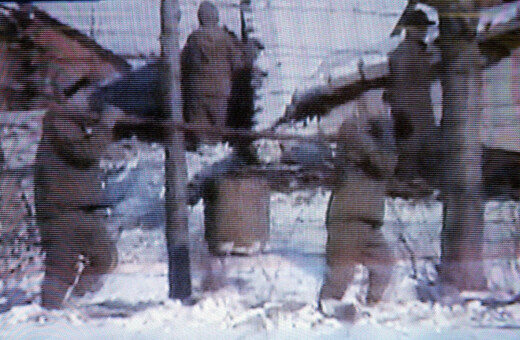hankyoreh
Links to other country sites 다른 나라 사이트 링크
NHRCK estimates 200 thousand political prisoners are confined in N.Korea

The National Human Rights Commission of Korea (NHRCK) released a report on the results of its investigation of the North Korean humans right situation on Jan. 20. According to the report, there are six concentration camps for political prisoners who are estimated to number approximately 200 hundred thousand.
An NHRCK official said on the same day, “We have found through the results of the investigation, in which we were aided by other organizations, there are six camps for political prisoners in North Korea.” The official added, “Within the six camps, excluding some areas of Yodok camp located in South Hamgyung Province, political prisoners are being held indefinitely upon imprisonment.”
In regards to North Korea human rights reports, NHRCK said, “Nearly every type of human rights violation has occured in those political concentration camps including the secret execution of prisoners.” NHRCK pointed out, “The South Korean government should persuade the North Korean government to resolve those problems through cooperation with domestic and foreign North Korean human rights organizations.
This marked the first time a state institution has conducted an investigation to analyze the North Korean human rights situation.
The Database Center for North Korean Human Rights, a conservative civic organization, conducted an investigation of the human rights situation in North Korea in February of 2009 at the behest of NHRCK. The Center compiled their reports by interviewing 17 defectors who had been detained in the political camps and surveyed 322 defectors who came to South Korea in 2009.
There have been critics of the reports, however. Seo Bo-hyuk, professor of Ewha Womans University’s Center for Peace Studies, said, “The South Korean government will be able to persuade the North Korean government to improve their human rights situation only when inter-Korean relations have improved.” Seo added, “A unilateral demand from South Korea could stifle the improvement of inter-Korean relations.”
Kim Yeon-cheol, head of the Hankyoreh Peace Institute, pointed out the possibility that the North Korea human rights situation had been exaggerated in the reports. Kim said, “There were some exaggerations in the testimonies of the defectors who were sources of information for the reports, and South Korean government’s interest in playing an active role in improving the North Korea human rights situation has also possibly led to an exaggeration in the reports.”
Please direct questions or comments to [englishhani@hani.co.kr]
Editorial・opinion
![[Column] Season 2 of special prosecutor probe may be coming to Korea soon [Column] Season 2 of special prosecutor probe may be coming to Korea soon](https://flexible.img.hani.co.kr/flexible/normal/500/300/imgdb/original/2024/0426/3317141030699447.jpg) [Column] Season 2 of special prosecutor probe may be coming to Korea soon
[Column] Season 2 of special prosecutor probe may be coming to Korea soon![[Column] Park Geun-hye déjà vu in Yoon Suk-yeol [Column] Park Geun-hye déjà vu in Yoon Suk-yeol](https://flexible.img.hani.co.kr/flexible/normal/500/300/imgdb/original/2024/0424/651713945113788.jpg) [Column] Park Geun-hye déjà vu in Yoon Suk-yeol
[Column] Park Geun-hye déjà vu in Yoon Suk-yeol- [Editorial] New weight of N. Korea’s nuclear threats makes dialogue all the more urgent
- [Guest essay] The real reason Korea’s new right wants to dub Rhee a founding father
- [Column] ‘Choson’: Is it time we start referring to N. Korea in its own terms?
- [Editorial] Japan’s rewriting of history with Korea has gone too far
- [Column] The president’s questionable capacity for dialogue
- [Column] Are chaebol firms just pizza pies for families to divvy up as they please?
- [Column] Has Korea, too, crossed the Rubicon on China?
- [Correspondent’s column] In Japan’s alliance with US, echoes of its past alliances with UK
Most viewed articles
- 1AI is catching up with humans at a ‘shocking’ rate
- 2After election rout, Yoon’s left with 3 choices for dealing with the opposition
- 3Is Japan about to snatch control of Line messenger from Korea’s Naver?
- 4South Korea officially an aged society just 17 years after becoming aging society
- 51 in 5 unwed Korean women want child-free life, study shows
- 6[Column] ‘Choson’: Is it time we start referring to N. Korea in its own terms?
- 7Korea’s 1.3% growth in Q1 signals ‘textbook’ return to growth, says government
- 8No good, very bad game for Korea puts it out of Olympics for first time since 1988
- 9[Editorial] Japan’s rewriting of history with Korea has gone too far
- 10Why Korea shouldn’t welcome Japan’s newly beefed up defense cooperation with US